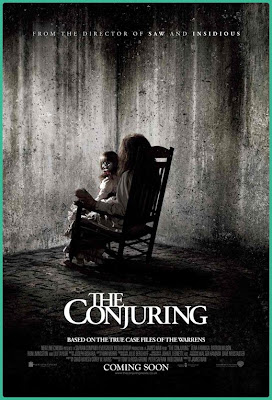2020 In Review: Saint Maud
Gives entirely new meaning to the term "Jesus Freak"
* * * * *
When the gods of A24 Films slapped all the posters and trailers for their latest religious horror flick with bold and glowing reviews calling it "A religious experience," "An unholy terror," and "the next great horror movie," there was to be only so much anticipation for Rose Glass' debut film Saint Maud, considering this was coming from the same studio that produced movies like The Witch (2015) and Hereditary (2018) which have already been hailed as some of the greatest horror movies ever made. And although the film never quite reaches the same level of deliciously blasphemous darkness that past A24 horror flicks have captured so frighteningly well, Saint Maud does more with its uncomfortable spirit in 84 minutes than an entire season's worth of Mike Flanagan's "Haunting of" Netflix series (no disrespect).
From the opening frame of a beetle crawling across the walls of what appears to be a decaying asylum (or a New Jersey gas station bathroom), Saint Maud instantly feels like vile heresy, akin to the effects of catching a nasty bug and experiencing the devil slowly spread through your body in real time. We follow Maud (Morfydd Clark), a devout Catholic nurse who tends aid to Amanda (Jennifer Ehle), the terminally ill and wheelchair bound former dancer, and much of the film is juxtaposed between these two vastly different characters, tortured and torturous. As Maud attempts to save Amanda's soul (because dancing and sexing and sinning = hell), she describes God moving around inside her body, and it begins to sound like a parasite rather than prayer. Filled with uncomfortably close-up shots of religious statues and detailed sketches of crucifixes to contrast the warm tones in the threaded carpets of Amanda's home, Maud as a film often feels like watching a church being built upon the very bowels of hell. Glass shoots her film with many deep and dark reds like a Gothic 1970s Dario Argento film, and being shot in the UK, Saint Maud feels British AF, from the thick brick walls of the dingy dive bars of England down to the chilly atmosphere of its paranoid wankers--sinners, the atmosphere consistently feels like an eerie, English nightmare.
Much of the film is just Maud staring into nothingness, tumbling down her own psychological rabbit hole as she desperately clings to what she thinks is her holy savior. As Maud descends deeper into her spiritual quest for God, the further Glass' film plunges into a hypnotic visual trance that often feels like more of a dark art-house experiment (or an Evanessence music video) than an actual story. For better or worse, every frame slowly becomes plagued with bleak and sexual terror daring religious moviegoers to walk out of their own house in blasphemous discomfort. Still, Glass' film is always anchored by Clark's riveting performance, which constantly tiptoes a fine line between psychological ambiguity and religious paranoia, resulting in a chilling and haunting climax of ungodly fire and brimstone.
*10 points to Rose Glass
Grade: A-



